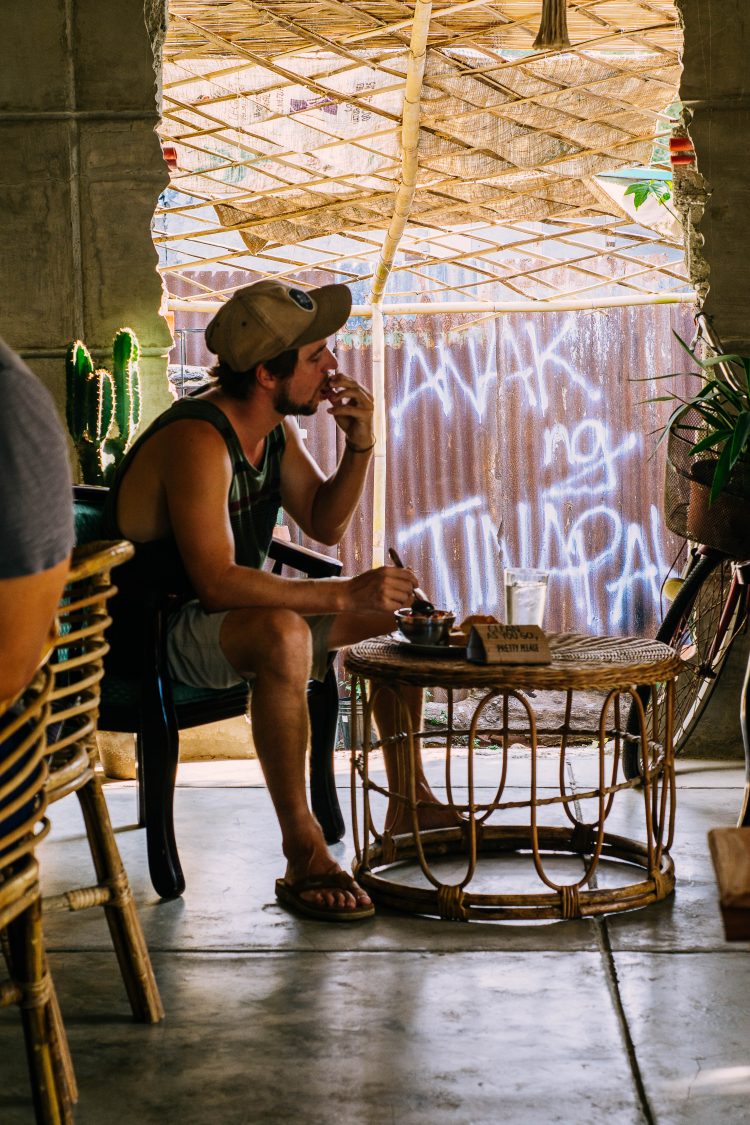
Don’t skimp on the coco jam!
That’s what Lea Apolonio of Masa Bakehouse said when asked, “How do you make the perfect pan de coco?” An accidental baker, as she once regarded herself, baking has become a big part of her as the humble bread-on-bikes grew to a bakehouse and coffee shop in La Union. As the Luzon-wide lockdown forced them to close their space for visitors, students, and parishioners, Masa resorts to accepting preorders and pick-ups that reminded them of how things were back when they were just starting.
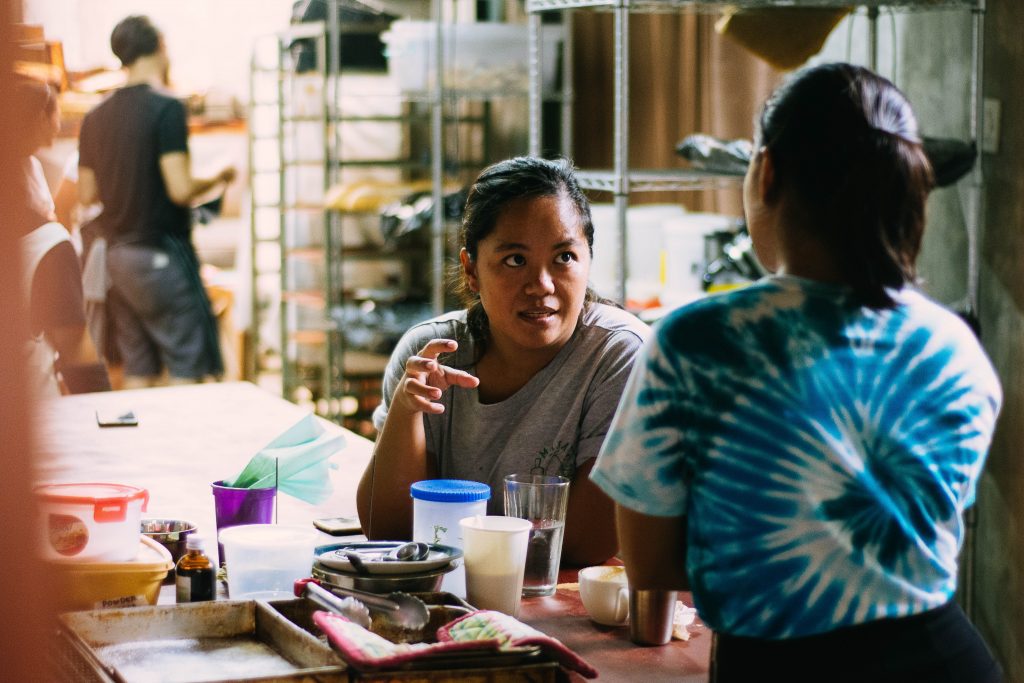
In La Union, you will get a sense that a lot of the small, independent businesses thrive due to the community that wants to see their friends succeed. For Masa, it was Flotsam and Jetsam who was their first customer when they started baking their first Brioche. Even today, the hostel’s buffet breakfast serves Masa bread and during their brunch menu, Dawn Patrol—which is also a brainchild between the hostel and Lea’s brunch haven, Barefoot.
Masa was already operating as a bread-on-bikes bakery selling pan de coco, Spanish bread, bichubichu, and kamote donuts when the idea of Barefoot came in. They wanted a space where they can serve food that they love to cook and eat, paired with their bread. “Mas nauna pang nag ka-shop ang Barefoot kaysa sa Masa. We needed to put up Barefoot because bread is hard to sell on its own because of the many perceptions that go along with it. Iisipin nila na it’s not as heavy as rice.”
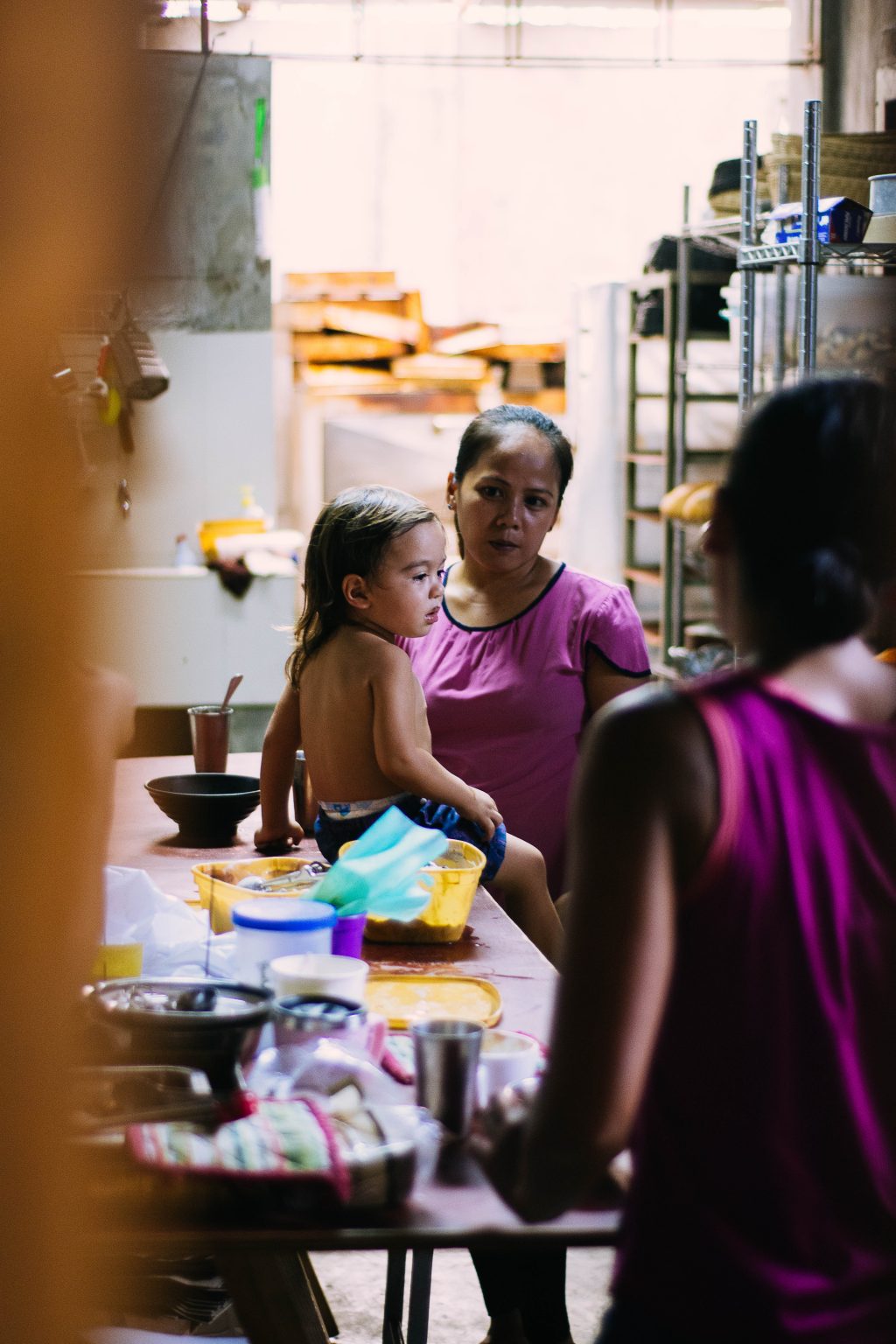
But biking around selling bread did not seem as sustainable a career as an office job for her staff, so that era had to end for Masa. Her son, Noah, was also getting bigger and a lot more playful so she also had to find a separate establishment just to bake. Lea found the spot in San Juan and started baking there.
Later on, she found potential in a space located around a school, a church, and a municipal hall. It was here she began to convert into an actual store.
“I just knew that there was potential here,” Lea says. As for the bakery, she knew that bread had to be paired with something so she served coffee as well and meals to go with the bread. The space is adorned with her plants and is reflective of a laidback surf town with the rattan furniture. “Some people think that it’s hipster, but it’s really not. It’s just a bakery that serves honest-to-goodness bread and coffee.”
Their menu consists of their notable loaves, along with the pan de coco, the Berliners, Spanish bread, and kamote donuts which Lea has served since the beginning. When it comes to the meals, they serve schnitzel and the Notorious P.I.G.—both filling and exceptionally made.
Lea also reveals that she does get asked why they don’t serve cakes. She understands that most Filipinos think that when it’s a bakery, it’s mostly sweets. But she also asserts that it’s easy to add cakes and once they do that, people would rather have cakes than bread.
“Ako kasi when I add anything to the menu, not because it looks good, or uso siya, kailangan natural siya. Hindi namin pinipilit, dapat talaga organic lang.” She says this in the sense that the food that she serves is what she enjoys cooking and eating. She explains further that when it comes to food service, your food has to be relatable.
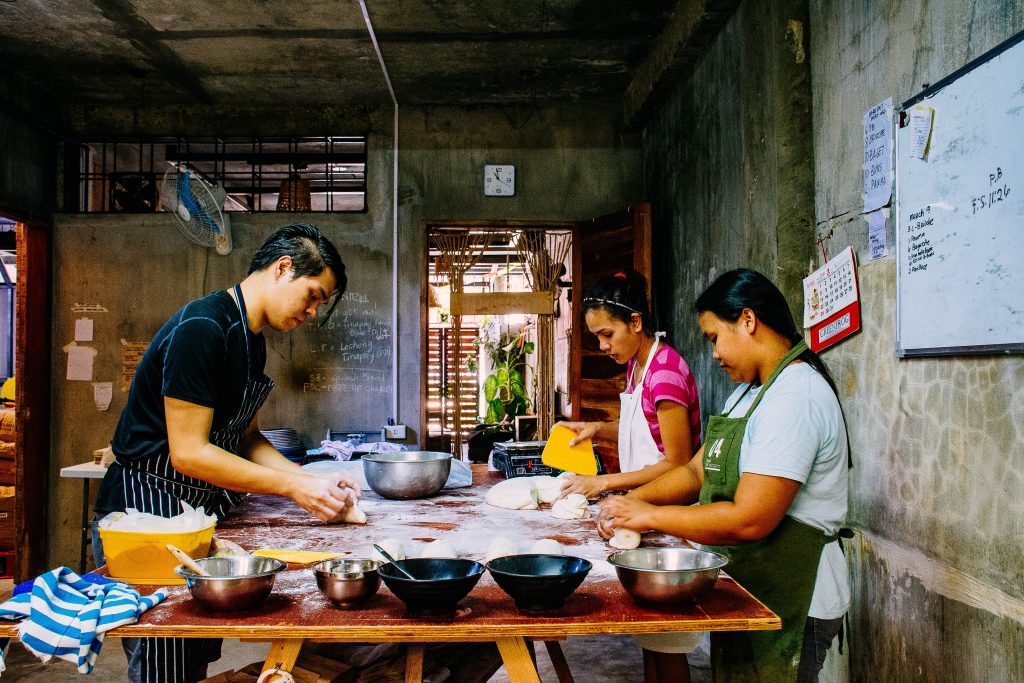
Her staff today were not bakers from the get-go. Most of them learned to bake from her and she wasn’t hesitant to teach as well. She didn’t care if she had to pay for their labor as long as they wanted to learn, she was open to having them on board. “Lahat naman natuturo lang,” she says. Perhaps it is also harder to teach somebody who already knows something because they have their own way of doing things. A sentiment that their head barista William Osoteo shares as he himself, started to train a few and impart whatever knowledge he has learned from working in El Union and Masa.
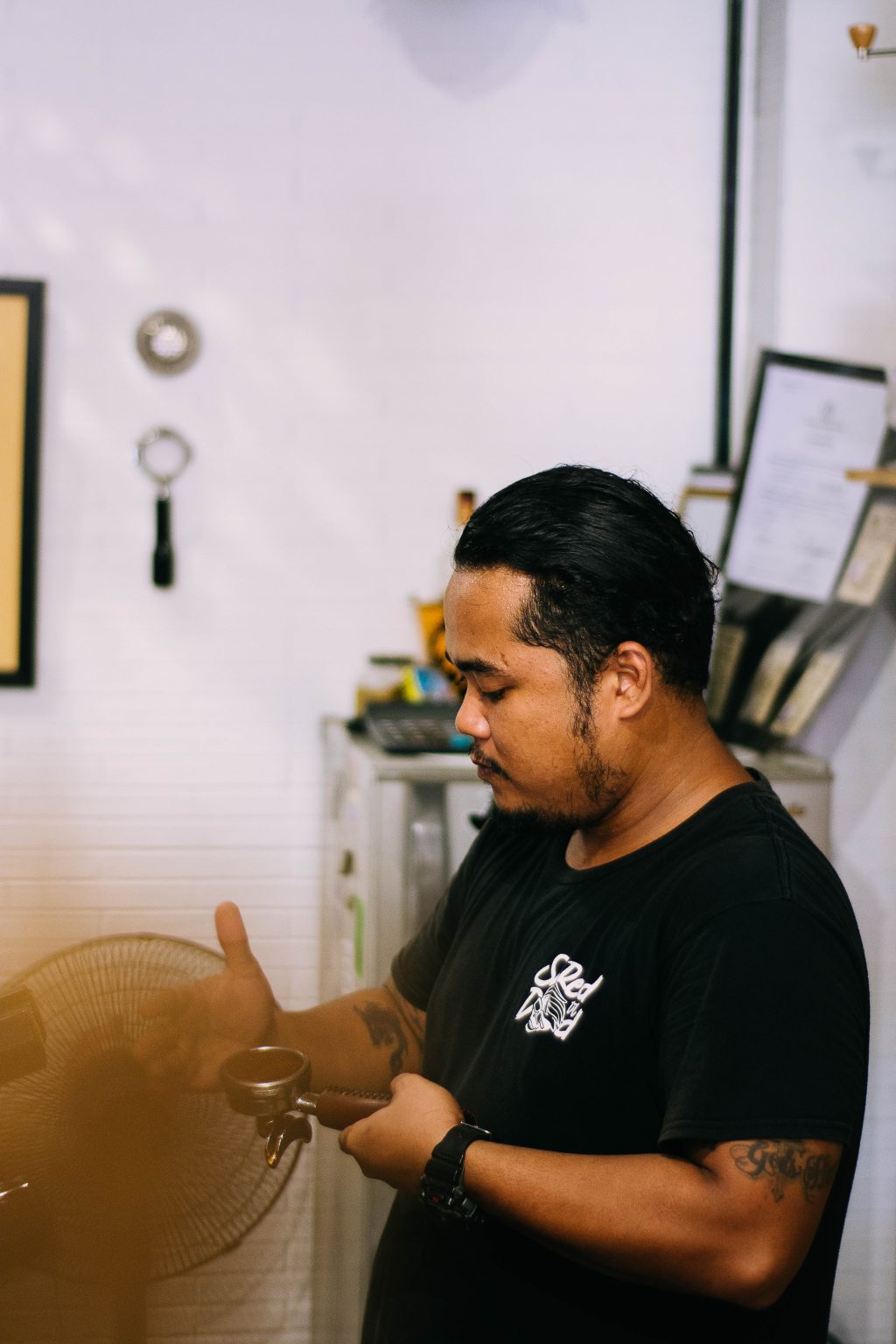
What’s more interesting to know is that most of them were young mothers who had no working experience. “Here in the country, for you to have work you need to have work experience, which is kind of stupid.” Lea wanted to provide both a working environment and a learning experience for the women because she saw how happy they were to receive a pay check.
“Nakakatuwa nga eh, kasi sabi nila sa ‘kin, ‘akala ko sa bahay lang ako’. Hindi nila akalain that they can provide for the family,” Lea shares.
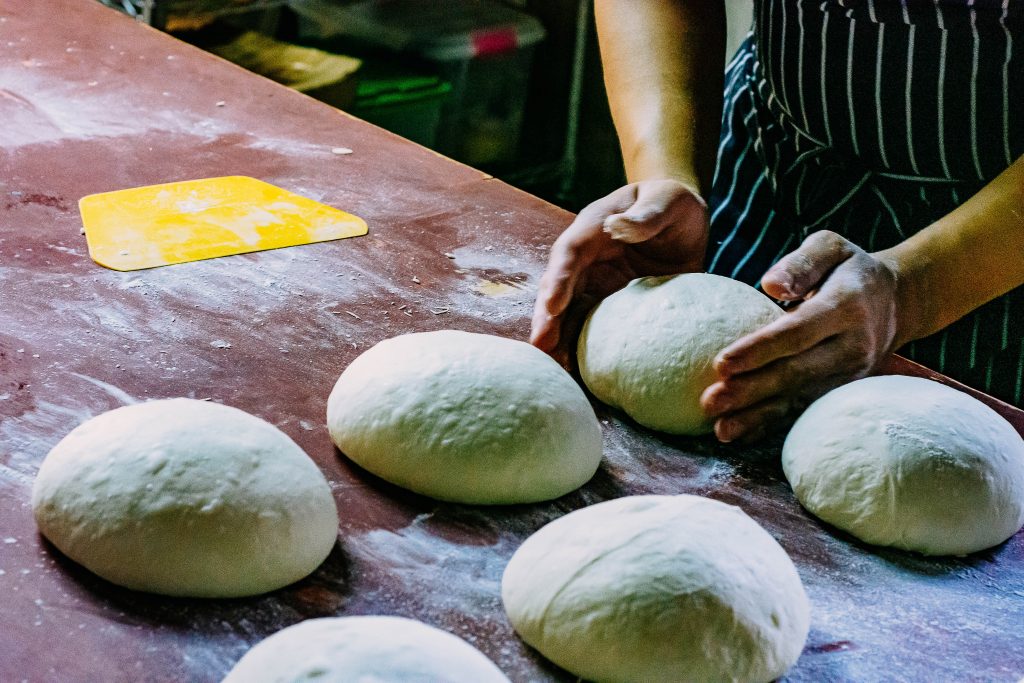
Masa also strongly advocates the hashtag #stopbadbread which they share with other bakers in the country such as Richie Manapat. “We think it’s unfair to just stop bad coffee, we should also stop bad bread,” which practices mostly consisted of using bleached flour and rushing the fermentation time by using instant yeast instead of the active dry yeast.
“It’s an inconvenience to bake the good way. Even before, when we barely make money by using the best ingredients at least we knew we were true to our principles. But again, as we all say, pag gusto may paraan, eh marami parin naman tayo na maraming dahilan.”
Lea Apolonio
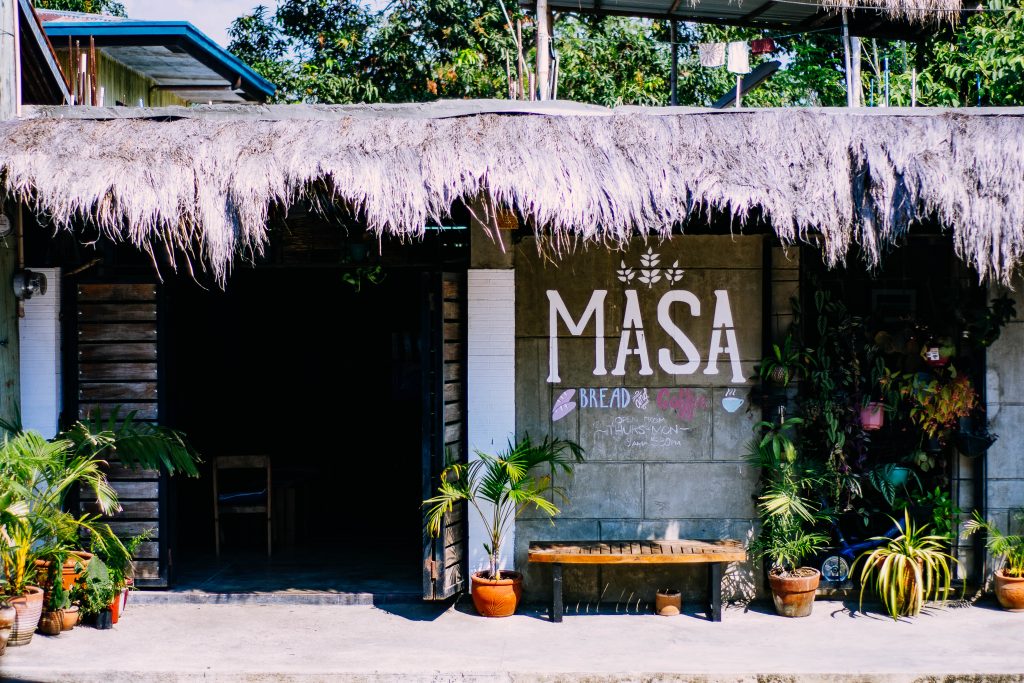
Filipinos have a conflicting relationship with bread that is, there’s no shortage of bakeries but it mostly ends up cheated—seen as a meriyenda and created with the easiest techniques lathered up with sugar. But bread has been a reflection of our culture ever since evident in several distinctly Filipino baked goods. Bread deserves reverence and perhaps the way to embody this respect towards bread is to just make good bread just as Lea and other honest bakers in the country are moving towards – discarding what everybody else does and serve food with justice.
Follow CLAVEL on Facebook and Instagram for news, culture, and more.








